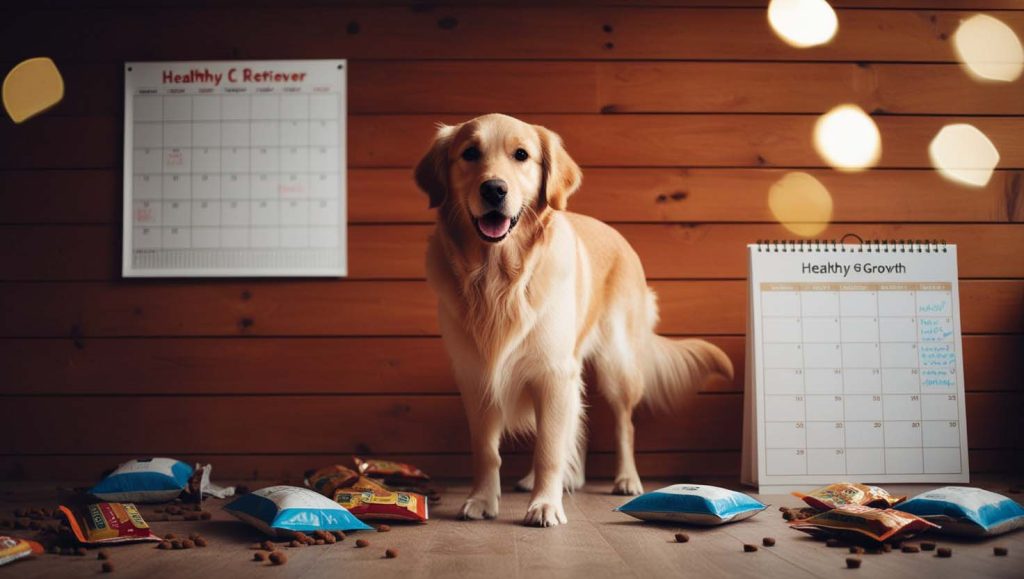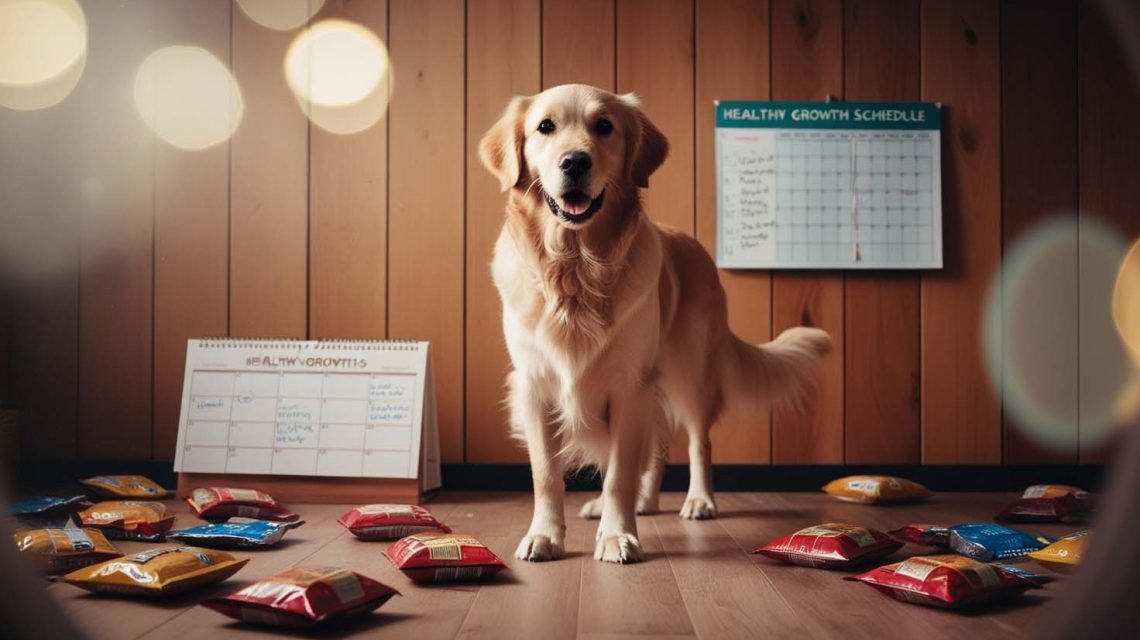Golden retrievers are one of the most popular and beloved dog breeds, thanks to their friendly demeanor and intelligence. Providing them with a consistent golden retriever food schedule ensures they grow strong, maintain a healthy weight, and stay active. Establishing a proper food routine isn’t just about feeding; it’s about meeting their nutritional needs and instilling good habits.
In this article, we’ll guide you through the perfect feeding schedule for golden retrievers, explain portion sizes, and share tips for adjusting their diet as they grow.
Why a Food Schedule Is Essential for Golden Retrievers
A structured food schedule plays a vital role in your golden retriever’s health. Feeding them at regular intervals helps maintain energy levels, prevent overeating, and supports digestion.
Benefits of Following a Food Schedule
- Encourages Healthy Eating Habits: Scheduled meals help prevent grazing and overeating.
- Supports Growth and Energy: Puppies need frequent meals to fuel their rapid development.
- Improves Digestion: Consistent timing ensures their digestive system works efficiently.
Golden Retriever Food Schedule by Age
Golden retrievers have different dietary needs as they progress through various life stages. Below is a detailed breakdown of the ideal feeding schedule for puppies, adults, and senior dogs.

Golden Retriever Puppy Food Schedule (8 Weeks to 12 Months)
Puppies grow rapidly and require frequent meals packed with essential nutrients.
| Age | Meals Per Day | Portion Per Meal | Feeding Times |
|---|---|---|---|
| 8–12 weeks | 4 meals | 1/4 to 1/3 cup | Morning, mid-morning, afternoon, evening |
| 3–6 months | 3 meals | 1/2 to 3/4 cup | Morning, noon, evening |
| 6–12 months | 2 meals | 1 to 1.5 cups | Morning, evening |
Tips for Puppies:
- Soften dry kibble with warm water for easier chewing.
- Choose a high-quality puppy formula designed for large breeds.
Adult Golden Retriever Food Schedule (1–7 Years)
Adult golden retrievers require fewer meals but need a balanced diet to support their active lifestyle.
| Age | Meals Per Day | Portion Per Meal | Feeding Times |
|---|---|---|---|
| 1–7 years | 2 meals | 1.5 to 2 cups | Morning, evening |
Tips for Adults:
- Adjust portion sizes based on activity level. Highly active dogs may need more calories.
- Avoid overfeeding to prevent obesity, a common issue in golden retrievers.
Senior Golden Retriever Food Schedule (7+ Years)
As dogs age, their metabolism slows, and they may require smaller portions or food formulated for senior dogs.
| Age | Meals Per Day | Portion Per Meal | Feeding Times |
|---|---|---|---|
| 7+ years | 2 meals | 1 to 1.5 cups | Morning, evening |
Tips for Seniors:
- Look for senior dog food with joint-supporting nutrients like glucosamine.
- Monitor their weight and adjust portions to prevent overfeeding.
Golden Retriever Food Guidelines
1. Choose the Right Food
Golden retrievers require large-breed formulas tailored to their size and energy needs. Look for foods with high-quality protein, healthy fats, and essential vitamins.
- For Puppies: Puppy formulas with DHA for brain development.
- For Adults: Balanced nutrients for energy and muscle maintenance.
- For Seniors: Low-calorie options with added joint support.
2. Avoid Overfeeding
Golden retrievers are prone to weight gain, which can lead to health issues like joint problems and heart disease. Stick to recommended portion sizes and limit treats to 10% of their daily calorie intake.
3. Provide Fresh Water
Always ensure your golden retriever has access to clean water. Proper hydration is crucial for digestion, energy, and overall health.
Adjusting the Golden Retriever Food Schedule
1. Activity Level
Active golden retrievers, especially those involved in activities like swimming or running, may require extra calories. On the other hand, less active dogs might need reduced portions to maintain a healthy weight.
2. Weight Monitoring
Regular weigh-ins can help you assess if you need to adjust portions. Consult your vet if your golden retriever shows signs of being underweight or overweight.
3. Transitioning Between Life Stages
When transitioning from puppy food to adult food or adult food to senior food, do so gradually over 7–10 days to avoid digestive upset.
Common Mistakes to Avoid
- Skipping Meals: Irregular feeding times can cause hunger-related behavioral issues.
- Feeding Table Scraps: Human food can upset their stomach and lead to poor nutrition.
- Ignoring Portion Sizes: Eyeballing portions often leads to overfeeding. Always use a measuring cup.
FAQs About Golden Retriever Food Schedule
1. How often should I feed my golden retriever?
Puppies under six months should eat 3–4 meals daily, while adults and seniors can eat twice a day.
2. Can I feed my golden retriever once a day?
It’s not recommended. Feeding twice daily helps maintain steady energy levels and prevents bloat, a serious condition in large breeds.
3. What treats are safe for golden retrievers?
Healthy treats like carrots, apples, and store-bought dog treats in moderation are safe. Avoid chocolate, grapes, and onions.
4. How do I know if my golden retriever is getting enough food?
Check their weight, energy levels, and body condition. A visible waist and ribs that are easily felt but not seen indicate a healthy weight.
5. Should I add supplements to their diet?
Most high-quality dog foods provide balanced nutrition. Consult your vet before adding supplements.


